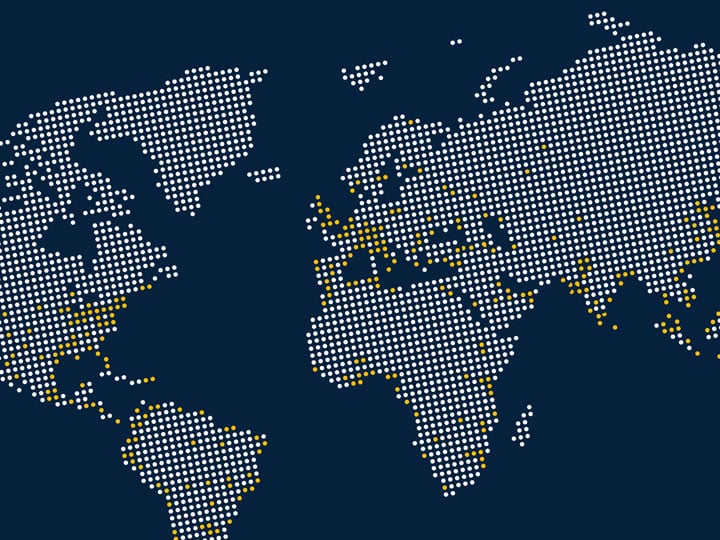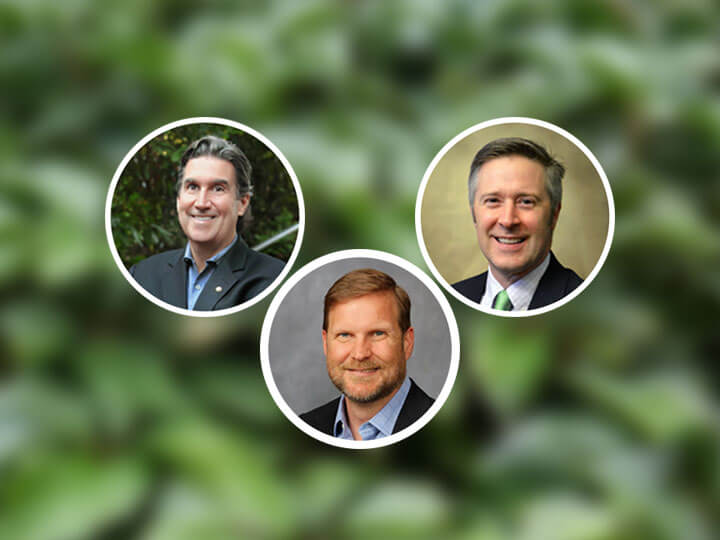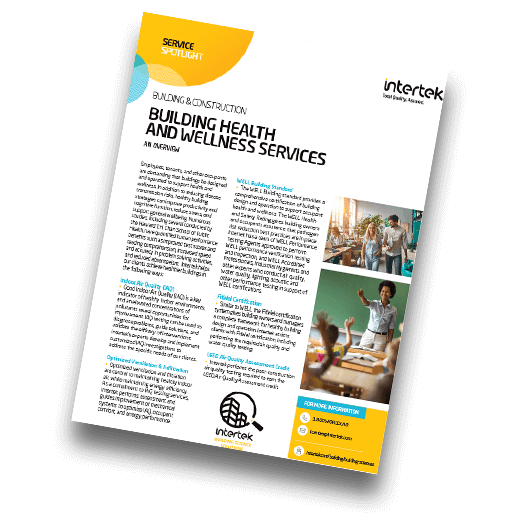In today's world, building sustainably is no longer a choice. It's a necessity.
What is LEED and the U.S. Green Building Council?
LEED® (Leadership in Energy and Environmental Design) is an internationally recognized green building rating system administered by the U.S. Green Building Council (USGBC). It provides a framework for building owners and professionals to design, construct, operate, and certify high-performance buildings that minimize environmental impact, reduce operating costs, and promote occupant health and well-being.
What is LEED Certification?
LEED certification is the formal recognition that a building project meets rigorous sustainability standards set by the USGBC. Through a comprehensive evaluation process, LEED assesses design, construction practices, ongoing operations, and maintenance across various areas such as water conservation, energy efficiency, and indoor environmental quality.
How Does a Project Achieve LEED Certification?
LEED uses a point-based system in which projects earn points by meeting required prerequisites and implementing sustainable strategies across categories such as energy, water, materials, and indoor environmental quality. The total number of points earned determines the certification level:
- Certified (40–49 points): Demonstrates a commitment to sustainability through energy efficiency, water conservation, and responsible material use.
- Silver (50–59 points): Reflects a higher level of sustainability performance, incorporating advanced strategies for energy and water savings, improved indoor environmental quality, and innovative sustainable design.
- Gold (60–79 points): Indicates significant achievement in sustainable building practices across multiple LEED categories.
- Platinum (80+ points): Reserved for projects showing exceptional leadership in sustainability and environmental performance. Buildings at this level are considered leaders in the green building movement.
LEED certification applies to a wide range of project types, including homes, commercial buildings, and campuses, making it one of the most adaptable and recognized green building frameworks worldwide.
What Are the Benefits of LEED Certification?
LEED-certified buildings use energy and water more efficiently, helping to lower utility bills and reduce operating costs. They support healthier indoor air quality and improve occupant comfort, which can improve productivity and wellness. LEED certification can also increase property value, attract tenants or buyers, and may qualify projects for tax incentives, expedited permitting, or zoning benefits in certain jurisdictions.
Is LEED Certification Mandatory?
LEED certification is not mandatory like building codes. However, many federal, state, and local agencies require or encourage LEED certification for publicly funded projects to ensure taxpayer dollars support sustainable construction practices. In addition, jurisdictions may offer incentives, such as increased building height allowances, expedited permitting, or tax breaks, for LEED-certified buildings.
- CALGreen: Some states have taken the initiative to integrate LEED principles into their regulations. For example, CALGreen is California's mandatory green building code. It incorporates elements aligned with LEED and ASHRAE 189.1 standard, including energy and water efficiency, indoor air quality, and waste reduction. Many CALGreen requirements mirror LEED prerequisites, simplifying LEED certification for California projects by streamlining documentation and credit achievement.
How Does LEED Certification Work?
LEED certification involves a collaborative process in which the project team manages certain aspects independently while working with the Green Business Certification Institute (GBCI). To achieve LEEP certification, project owners should begin by registering their projects with the USGBC to access the LEED Online platform. The project team then identifies which LEED credits to pursue and develops strategies to incorporate the requirements into the project design, aligning with all prerequisites and credit criteria.
Throughout construction, team members document how the project meets LEED standards. Once the project is complete, this documentation is submitted to GBCI for review by an independent third-party team. The review process typically takes several weeks, although the exact timeline may vary depending on the project's complexity. During this stage, the team may be asked to respond to comments or provide additional documentation. Final LEED certification is granted upon successful review, marking a major milestone in the project's sustainability journey.
How Can Product Certifications Help Your Product Stand Out in LEED Projects?
Two certifications can help LEED project teams earn points, and increase the likelihood that your product is selected for use in LEED projects are:
- Intertek's Clean Air Certification verifies that products meet low-VOC requirements to support healthier indoor air quality. Certified products can contribute to LEED points under the Low-Emitting Materials and Indoor Air Quality Assessment credits, and align with three WELL features: Air Quality, Enhanced Air Quality, and VOC Restriction.
- BIFMA LEVEL® certification evaluates the sustainable manufacturing of furniture products. Certified products can contribute to LEED's Multi-Attribute Product credit and align with other major green building rating systems. Under the LEVEL program, Intertek assesses both products and manufacturing processes based on four key criteria: materials, energy use, impact on atmosphere and ecosystem health, and social responsibility.
What Do You Need to Know About LEED v5?
The April 28, 2025, release of LEED v5 introduced a range of updates that reflect the industry's increased focus on resilience, energy performance, carbon reduction, and indoor environmental quality.
- Resilience as a Core Principle: Projects are now required to conduct resilience assessments to identify and mitigate risks related to natural disasters and climate change. These assessments inform design decisions that help buildings better withstand future challenges.
- Sharper Focus on Energy and Carbon: LEED v5 raises performance expectations around building enclosure efficiency, energy modeling, and carbon emissions. It places greater emphasis on reducing both operational and embodied carbon, encouraging the use of materials with Environmental Product Declarations (EPDs).
- Ongoing Indoor Environmental Quality: The new version reinforces the importance of occupant health by supporting continuous indoor air quality monitoring, beyond initial testing, to ensure long-term comfort and performance.
How Can You Achieve LEED Certification with Confidence and Expertise?
Navigating the LEED certification process can be complex, but our dedicated LEED specialists are here to support you every step of the way, from the initial assessment to final certification.
Intertek's services are designed to address a wide range of LEED requirements. We offer design, testing, and validation support to help meet LEED acoustic standards. Our team conducts indoor air quality assessments and provides expertise in building envelope performance, both of which are essential for meeting LEED's rigorous energy criteria.
Our consulting spans the entire certification journey. We begin with feasibility assessments and guide you through the complexities of compliance and documentation. Our energy modeling services demonstrate improved building performance, helping you earn valuable LEED points and reach your certification goals.
By partnering with us, you gain a dedicated team that understands the intricacies of the LEED certification process. Beyond LEED certification, we also offer Property Resilience Assessments and can partner with you to achieve WELL Certification. Contact us today to discuss your green building goals.
Knowledge Center
Building Health & Wellness: An Overview of Services
Acoustical Testing & Consulting Resources
Remote Pre Inspections for NFPA 80 / 101
Protek - Safety. Everywhere. Every Day
Fire Doors 101: Your Guide to Testing and Certification - Webinar Recording
Tornado Testing & Certification Requirements - Webinar Recording
Plumbing Products Testing & Certification - Webinar Recording
The Evolving Code Evaluation Process White Paper
Proposition 65 & the Furniture Industry Webinar Recording
Why Planning for FCC Certification is Key to Success in the Door Hardware Industry White Paper

Upcoming Tradeshows & Events
Resources
- Search and Buy Building & Construction Standards
- SpecDirect
- Building Products Directory
- Project Connect (formerly myATI) – B&C Products
- Construction Hive – B&C Projects (PSIQest)
- My TestCentral

